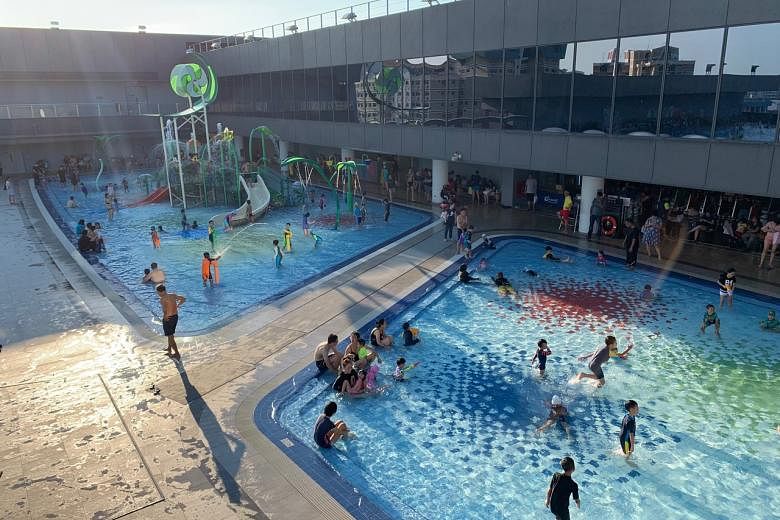SINGAPORE - Enhanced social distancing measures were announced last Friday (March 13), gatherings are now being limited to 250 people at a time. Some people have asked if it is still safe to go swimming, in the light of the Covid-19 pandemic.
Q: Is it safe to go swimming during this period? Can the virus be transmitted through water?
A: It is known that the virus is transmitted through respiratory droplets and saliva, but there is currently no evidence suggesting that the virus can be spread through water, hence making swimming one of the safer sporting activities.
Infectious diseases expert Leong Hoe Nam also suggests that it is generally safe to go swimming, as the water and chlorine within swimming pools could help to kill the virus.
People, however, should be mindful of their interactions with others outside the water.
Professor Paul Tambyah from the Department of Medicine at the NUS Yong Loo Lin School of Medicine noted media reports about an infection cluster in a South Korean church that sprayed saltwater in its churchgoers' mouths. However, this incident does not provide clear evidence suggesting that the virus can be transmitted via water, he said.
Prof Tambyah also said that it is not known as to how long the virus can survive in plain water, and there have been no cases of viral transmission through plain water.
Thus, citing the United States Centres for Disease Control and Prevention, Prof Tambyah concludes that recreational activities in water is generally safe.
Q: What precautions should one take outside the swimming pool?
A: Individuals should practise good basic hygiene by refraining from sharing towels, and showering before entering the pool, said Prof Tambyah. He also cautioned that individuals should avoid public pools when they are unwell.
It should be noted that those given stay-at-home orders should remain home at all times. If they leave their homes, they will be guilty of breaking the law.
As common facilities such as locker rooms and showers may be crowded, showering at home could be a safer precautionary measure.
Dr Leong also advised individuals to avoid lingering around the pool area, and to go home directly after swimming.
Those who need to use public shower facilities should opt for a single shower cubicle, he added
SportsSG has also regulated the number of people using the Active SG swimming pools at any one point in time, and closed off children pools until further notice.
These precautionary measures were implemented in line with the advisory issued by the Ministry of Health (MOH) on March 13, which said that sports centres with indoor facilities should limit the number of patrons and introduce physical separation measures, on top of increased cleaning frequency and issuing advisories to reduce unnecessary contact.
Q: Are lane segregation measures introduced effective against the spread of the virus?
A: Lane segregation has been implemented at running tracks and swimming pools, in line with the precautionary measures that came into force on March 15.
This means that several running lanes are cordoned off at various stadiums, restricting runners to a few available lanes.
ActiveSG swimming pools have placed lane ropes restricting swimming to the length of the pool. Certain lanes have been allocated for swimming classes and lap swimming, while the remaining are available to the rest of the swimmers.
Experts have warned that while such social distancing measures make sense, people should still be wary of possible overcrowding situations.












